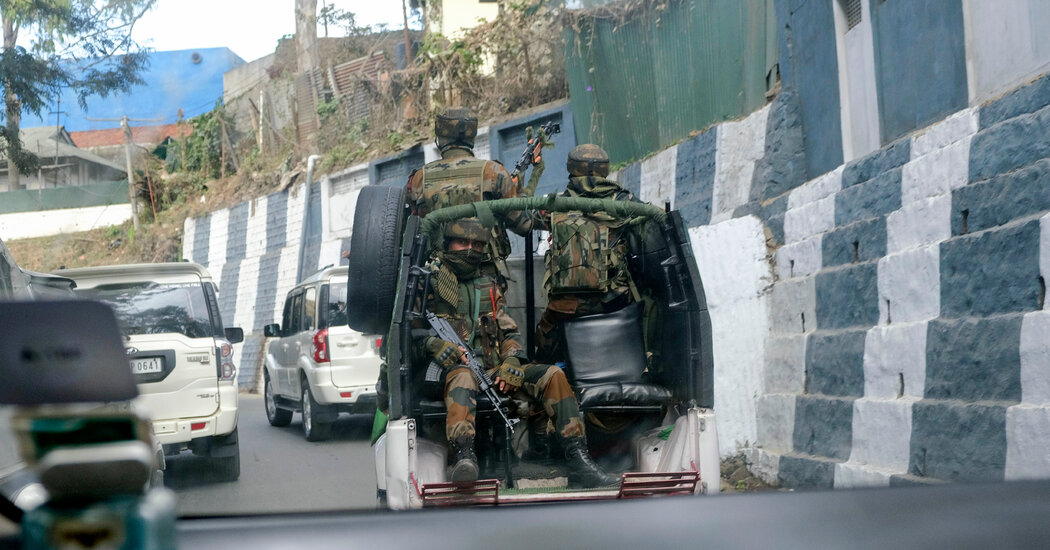Protests and clashes raged on Sunday in northeastern India after 14 civilians were killed by soldiers, one of the deadliest outbursts of violence in recent years in a region long torn by insurgency and ethnic divisions.
Eight of the civilians were killed when a truck carrying coal miners returning from work was mistakenly ambushed late Saturday by security forces searching for insurgents in the Tiru area of Nagaland State, along the border with Myanmar, according to local officials. The Indian Army said that the soldiers had been responding to “credible intelligence” reports about the movement of insurgents, who often cross into Myanmar after attacking soldiers.
News about the killings spread quickly on social media and prompted residents in the area to attack troops and set two military vehicles on fire. After an Indian soldier was killed during the protests and street fighting, security forces opened fire on crowds, resulting in the killing of five more people on Saturday night. On Sunday afternoon, another civilian was killed by government forces after protesters entered an Indian Army camp.
In a statement referring to the ambush on Saturday, the Indian Army said: “The incident and its aftermath is deeply regretted. The cause of the unfortunate loss of lives is being investigated at the highest level and appropriate action will be taken as per the course of law.”
For decades, India’s remote northeastern region, comprising eight states linked to the rest of the country via a relatively narrow strip of land north of Bangladesh, has been roiled by separatist insurgencies led by local militant organizations. Those groups’ campaigns have ranged from pushing for more autonomy to demanding full independence.
Violence had been declining in the region — which has borders with Bangladesh, Bhutan, China and Myanmar — after India built a heavy military presence and signed a peace agreement in 2015 with separatist groups.
But clashes there have become more frequent in recent months, including in July, when five police officers were killed and dozens of other officers and civilians were wounded during a standoff at a long-disputed border crossing between Assam and Mizoram States. The killings of the civilians in Nagaland over the weekend stoked fears that the violence could escalate further.
Local tribal leaders said on Sunday that the miners had been returning home to the village of Oting, in the Mon district, when the truck carrying them was ambushed.
As anger about the killings rippled out, the authorities in the region shut down mobile internet and messaging services to stop the spread of rumors, officials said.
The Indian home minister, Amit Shah, who is responsible for domestic security, said that he was “anguished” about the deaths and offered his condolences to the families of those killed.
In a post on Twitter, Mr. Shah vowed a thorough investigation “to ensure justice to the bereaved families.”
Toshi Ao, a law professor at the University of Delhi who is from Nagaland, said that the state had been slowly recovering from decades of unrest and that it had started to attract tourists as more peaceful conditions prevailed in recent years.
“People were trying to move ahead,” the professor said. “But incidents like these resurface the history of atrocities committed against civilians in the memory.”
“It was a big mistake on the part of the security forces,” he added.





